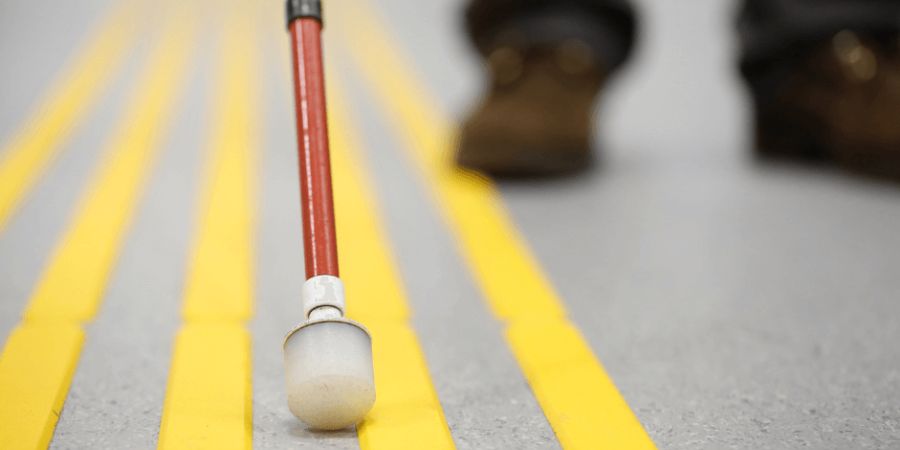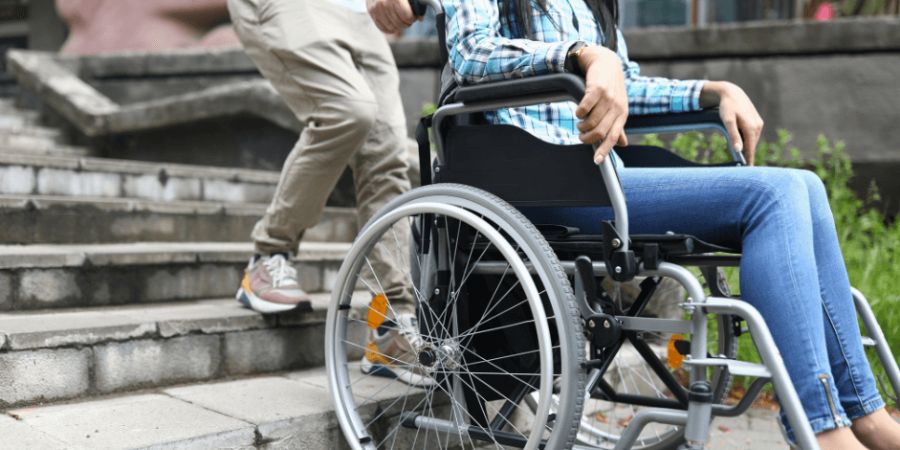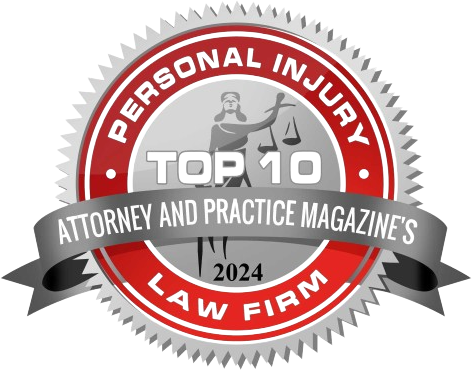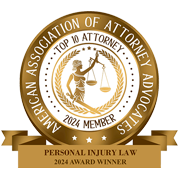

Virginia Social Security & Disability Lawyers
Navigating disability laws to get the necessary benefits can be challenging, especially when you are focusing on living your life. Whether you are seeking benefits for Social Security Disability (SSD) or long-term disability, the process can be complicated. The claims processes vary depending on the kind of disability insurance you opt for, so you may go through the government or a private insurance company.
While the process is complicated, you do not have to face it alone. The Virginia Social Security disability lawyers at Montagna Law are here to help. Get in touch with our team today to let our knowledgeable attorneys help you with your disability needs.
We handle all types of Social Security disability claims, including:
- Disability benefits for surviving spouses
- Supplemental Security Income (SSI)
Social Security Disability Insurance (SSDI)
Call (877) 622-8100 or complete the online contact form to request a free consultation.
100% no fees unless we win your case!
-
If you’re looking for someone who’s professional, attentive, serious, caring, and negotiable than Mr. Anthony Montagna is who you need. He understood his assignment and delivered well especially being with what I was looking at in my case. I want …– Tiara S.
-
I don’t know how he does it, but this man is a monster in the courtroom. I’ll admit I had fears of the outcome of my case, but when I was with Mr. Montagna in front of a judge. My confidence started to raise. Extremely professional and how he hand…– BD P.
-
Honestly , Mr. Montagna treats like you are his family the way he cares, he takes care of his people , I was doing triple digit speed on a 60 and lord I thought it was over for me in that courtroom , he’s a genius because I literally got away with…– Justin
-
I have been a client of Montagna Law since 2014. Because the customer service is exceptional, I have established a rapport with everyone in the office. As a customer for 8 years, it is noted that this firm goes above and beyond for the clients.– Eric E.
-
Montagna Law are wonderful attorneys. I was diagnosed with stage 4 lung cancer and they assisted me from day one when I contacted them. I highly recommend their services! Thanks guy’s and gal’s for your services!– Kevin B
The Different Types of Disability Benefits For Virginia Residents
Several types of disability benefits may be available for Virginia residents.
Supplemental Security Income
Supplemental Security Income, or SSI, allows you to receive compensation if you cannot work due to a disability. This benefit, however, is designed for people who have not earned sufficient credits by paying FICA taxes for their disability case.
Social Security Disability Insurance
Social Security Disability Insurance, or SSDI, is the most common type of disability insurance, and it is received if you paid enough payroll taxes to qualify. Note that this is provided through the government.
Long-Term Disability
Long-term disability benefits, or LTD, offer compensation for disabilities that need ongoing treatment. This kind of insurance is only available through private insurers, and you can purchase it on your own or go through a provider sponsored by your employer.
Was Your Social Security Case Denied?
Social Security denies the majority of initial applications, but many of these claims are accepted after either reconsideration or a hearing before an Administrative Law Judge. If you have already submitted your initial application and your case has been denied, our Virginia Social Security disability attorneys can help you with the appeal process. The Social Security application and decision process has become increasingly complex as the definition of disability has evolved. Having the experienced Social Security Disability lawyers of Montagna Law on your side can make a big difference in winning your case. Our law firm will explore every avenue of possible compensation. If applicable, our Social Security disability lawyers can also help you with related claims such as workers’ compensation and personal injury cases. Our disability lawyers understand that the importance of your case lies not only in financial support but also in the medical care you need, which may be provided by the Federal Medicare program after you win your case.
Why You Need a Virginia Disability Lawyer
We represent clients on a contingency fee basis. This means you don’t pay us a dime in legal fees unless we win your case. We’re very confident in our ability to get you the benefits you deserve. If you have a Social Security Disability claim or if your SSDI claim has been denied, contact the Social Security Disability lawyers at Montagna Law at 877-622-8100 for a free consultation to discuss your case. Do not wait, as time limits apply to file a claim. Make sure you protect your rights.
Social Security Disability Benefits FAQs
Who Can Get Social Security Disability Benefits?
Social Security pays benefits to people who cannot work because they have a medical condition that is expected to last at least one year or result in death. Federal law requires this very strict definition of disability. While some programs give money to people with partial disability or short-term disability, Social Security does not.
Which Medical Conditions Are Eligible to Receive SSDI in Virginia?
 SSDI can be received based on several qualifying conditions. They include:
SSDI can be received based on several qualifying conditions. They include:
- Speech issues
- Musculoskeletal disorders
- Mental disorders
- Cancer
- Immune system disorders
- Neurological disorders
- Skin disorders
- Cardiovascular disorders
- Genitourinary disorders
- Endocrine disorders
How Do I Meet the Earnings Requirement for Disability Benefits in Virginia?
In general, to get disability benefits, you must meet two different earnings tests:
- A “recent work” test based on your age at the time you became disabled; and
- A “duration of work” test to show that you worked long enough under Social Security.
Certain blind workers have to meet only the “duration of work” test.
Application Process for Disability Benefits
There are two ways that you can apply for disability benefits. The first way is to apply at www.SocialSecurity.gov. Alternatively, you can call 800-772-1213 to either make an appointment to file a disability claim at your local Social Security office or to set up an appointment for someone to take your claim over the telephone. The disability claims interview lasts about one hour. If you schedule an appointment, the Social Security Administration will send you a Disability Starter Kit to help you get ready for your disability claims interview. The Disability Starter Kit also is available online.
When Should I Apply, and What Information Do I Need?
You should apply for disability benefits as soon as you become disabled. It can take quite a long time to process an application for disability benefits (three to five months). To apply for disability benefits, you will need to complete an application for Social Security Benefits and the Disability Report, which can be done online. You also can print the Disability Report, complete it, and return it to your local Social Security office. Other information needed includes:
- Your Social Security number
- Your birth or baptismal certificate
- Names, addresses, and phone numbers of the doctors, caseworkers, hospitals, and clinics that took care of you and dates of your visits
- Names and dosages of any medicines you regularly take
- Medical records from your doctors, therapists, hospitals, clinics, and caseworkers that you already have in your possession
- Laboratory and test results
- A summary of where you worked and the kind of work you did
- A copy of your most recent W-2 Form (Wage and Tax Statement)
- If you are self-employed, this would include your federal tax return for the past year.
In addition to the basic application for disability benefits, there are other forms you will need to complete. One form collects information about your medical condition and how it affects your ability to work. Other forms give doctors, hospitals, and other healthcare professionals who have treated you permission to send the Social Security Administration information about your medical condition.
Who Decides If I Am Disabled?
The Social Security Administration reviews your application to make sure you meet some basic requirements for disability benefits, checks whether you worked enough years to qualify, and evaluates any current work activities. If you meet these requirements, the Social Security Administration will send your application to the Disability Determination Services office in your state. This state agency completes the disability decision. Doctors and disability specialists in the state agency ask your doctors for information about your condition. Using the medical evidence from your doctors and hospitals, clinics, or institutions where you have been treated, they will consider all the facts in your case. The state agency staff may need more medical information before they can decide if you are disabled. If more information is not available from your current medical sources, the state agency may ask you to go for a special examination. Social Security will pay for the exam and for some of the related travel costs.
How is the Decision Made?
Social Security uses a five-step process to decide if you are disabled.
- Are you working? If you are working and your earnings average more than a certain amount each month, they generally will not consider you disabled. The amount changes each year, as outlined on the Social Security Administration website. If you are not working, or your monthly earnings average the current amount or less, the state agency then looks at your medical condition.
- Is your medical condition “severe”? For the state agency to decide that you are disabled, your medical condition must significantly limit your ability to do basic work activities — such as walking, sitting, and remembering — for at least one year. If your condition is that severe, the state agency goes on to step three.
- Is your medical condition on the Listing of Impairments? The state agency has a Listing of Impairments that describes medical conditions that are considered so severe that they automatically mean that you are disabled as defined by law. Similarly, if the severity of your medical condition meets or equals that of a listed impairment, the state agency will decide that you are disabled.
If it does not, the state agency goes on to step four.
- Can you do the work you did before? At this step, the state agency decides if your medical condition prevents you from being able to do the work you did before. If it does not, the state agency will decide that you are not disabled.
If it does, the state agency goes on to step five.
- Can you do any other type of work? The state agency evaluates your medical condition, age, education, past work experience, and any skills you may have that could be used to do other work. If you cannot do other work, the state agency will decide that you are disabled. If you can do other work, the state agency will decide that you are not disabled.
Special Rules for Blind People
 There are a number of other special rules for people who are blind. Social Security disability benefits alongside retirement benefits often are calculated based on your average lifetime earnings. If you are working or have worked through the onset of blindness at a reduced earnings potential, you may be able to utilize a disability freeze. This will not count the years in which you were working for a lesser amount meaning the overall earnings average will be higher. Additionally, there are no duration requirements for blindness like other disabilities, and blind work expenses can be covered like service animals, transportation, and even completing taxes and union dues. The Social Security Administration will tell you their decision. When the state agency reaches a decision on your case, Social Security will send you a letter. If your application is approved, the letter will show the amount of your benefit and when your payments start. If your application is not approved, the letter will explain why and tell you how to appeal the decision if you do not agree with it.
There are a number of other special rules for people who are blind. Social Security disability benefits alongside retirement benefits often are calculated based on your average lifetime earnings. If you are working or have worked through the onset of blindness at a reduced earnings potential, you may be able to utilize a disability freeze. This will not count the years in which you were working for a lesser amount meaning the overall earnings average will be higher. Additionally, there are no duration requirements for blindness like other disabilities, and blind work expenses can be covered like service animals, transportation, and even completing taxes and union dues. The Social Security Administration will tell you their decision. When the state agency reaches a decision on your case, Social Security will send you a letter. If your application is approved, the letter will show the amount of your benefit and when your payments start. If your application is not approved, the letter will explain why and tell you how to appeal the decision if you do not agree with it.
What If I Disagree?
If you disagree with a decision made on your claim, you can appeal it. The steps you can take are explained in The Appeals Process. Additionally, you have the right to be represented by an attorney or other qualified person of your choice when you do business with Social Security.
How Many Times Can You Appeal the SSDI Decision?
You can appeal any SSDI decision four times if you do not like the determination that was made. The first appeal is merely a request for reconsideration, but the second appeal will put you in front of an administrative law judge. With the third appeal, you can request a review with the Appeals Council. The final appeal allows you to bring your case to the federal District Court.
Can My Family Get Benefits?
Certain members of your family may qualify for benefits based on your work. They include:
- Your spouse, if he or she is 62 or older;
- Your spouse, at any age, if he or she is caring for a child of yours who is younger than age 16 or disabled;
- Your unmarried child, including an adopted child, or, in some cases, a stepchild or grandchild. The child must be younger than age 18 or younger than 19 if in elementary or secondary school full time; and
- Your unmarried child, age 18 or older, if he or she has a disability that started before age 22. (The child’s disability also must meet the definition of disability for adults.)
How Do Other Payments Affect My Benefits?
If you are getting other government benefits, the amount of your SSDI benefits may be affected. For more information, you should see the following:
- How Workers’ Compensation And Other Disability Payments May Affect Your Benefits (Publication No. 05-10018);
- Windfall Elimination Provision (Publication No. 05-10045); and
- Government Pension Offset (Publication No. 05-10007).
What Do I Need to Tell Social Security?
You must tell Social Security if you have an outstanding warrant for your arrest, are convicted of a crime, or violate a condition of parole or probation.
When Do I Get Medicare?
You will get Medicare coverage automatically after you have received disability benefits for two years.
What Challenges Do People in Virginia Seeking Social Security Disability Benefits Face?

The primary challenge is meeting the burden of proof. It is on the claimant to demonstrate their disability rather than the SSA having to discredit it. Everything you submit in writing will become part of your permanent record. Medical evidence must also be extensive, and it is up to you to submit everything. Finally, the SSA moves at a snail’s pace, so you will need patience. Here to Help People Through the Social Security Benefits Process Our Virginia Social Security Disability lawyers at Montagna Law have been representing disabled individuals in and near the cities of Chesapeake, Newport News, Virginia Beach, Richmond, and Norfolk before the Social Security Administration for years. We work on a contingency fee basis, meaning we don’t get paid unless you win your case, so there is no risk for legal advice or a free case review. Get started by calling 877-622-8100 or filling out our online contact form today.

the complexities of your SSDI case.







